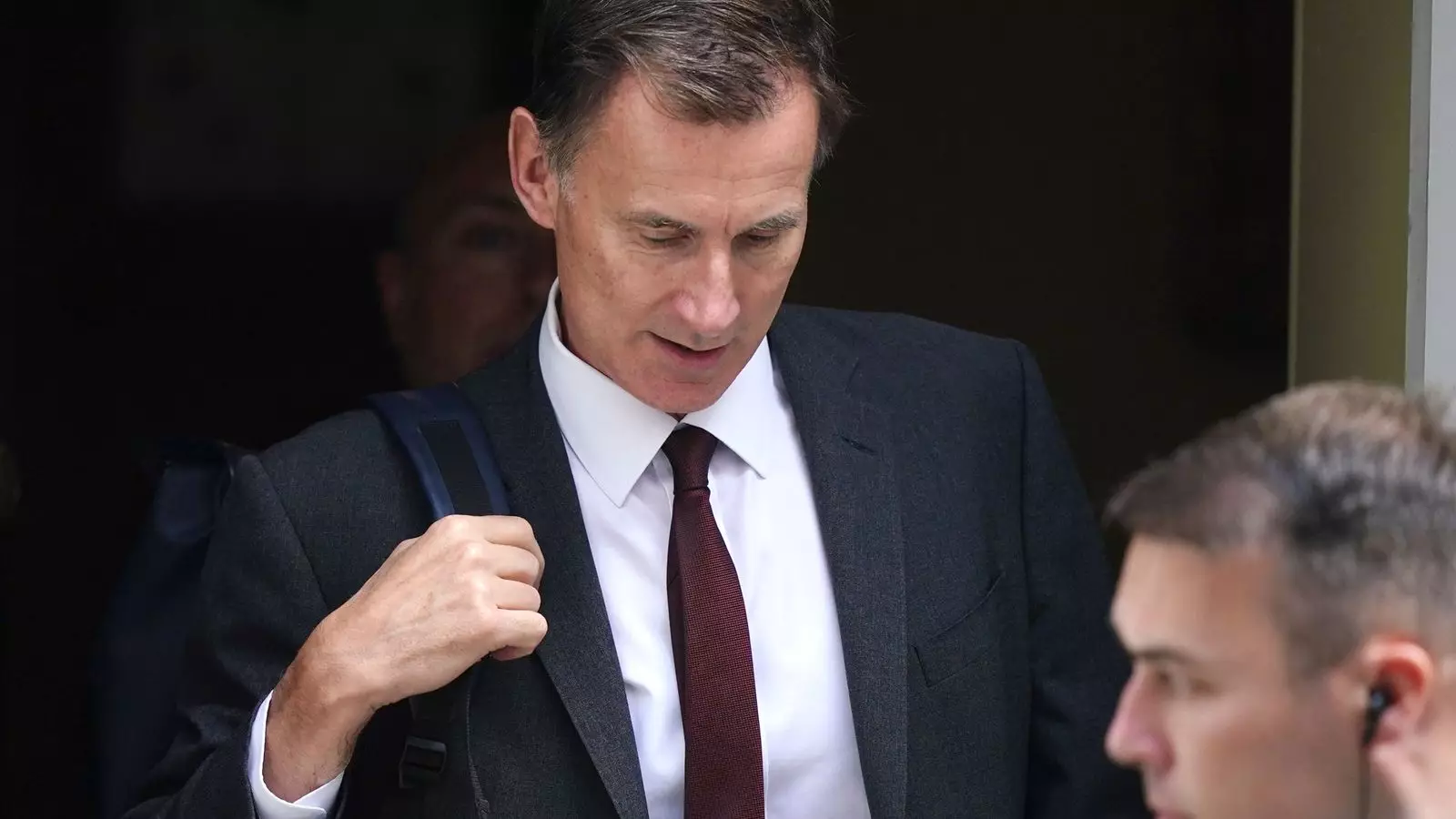Chancellor Jeremy Hunt has recognized the need for a significant overhaul of public services and the welfare system in order to address the issue of constantly increasing taxes. According to Hunt, the government should focus on enhancing productivity rather than expanding the state. He highlighted the potential of artificial intelligence in improving frontline efficiencies and easing the burden on the country’s finances. In addition, Hunt emphasized the necessity of welfare changes, citing that approximately 100,000 individuals transition from work to benefits annually without seeking employment opportunities. As the Conservative Party annual conference commences in Manchester, various party members are advocating for tax cuts. This call for tax relief follows a report by the Institute for Fiscal Studies (IFS) thinktank, which stated that the Conservative government oversaw the largest tax increases since at least World War II between the 2019 election and the upcoming general election. The IFS analysis predicts that taxes will rise to approximately 37% of national income, equivalent to an extra £3,500 per household. Despite mounting pressure, Hunt firmly stated to The Times newspaper that tax cuts are not currently viable. Instead, he emphasized the importance of a more productive state, one that not only maintains current services but also enhances them to meet the growing demands caused by an aging population.
More than 30 Tory MPs, including prominent figures such as Liz Truss and Dame Priti Patel, have declared their refusal to support further tax hikes. Truss, who sparked market turmoil with unfunded tax cuts in her mini-budget a year ago before being ousted from office, voiced her belief that the tax burden should be reduced, especially considering the financial strain experienced by families. This opposition from within the party highlights the challenges faced by the government in attempting to balance the demands for tax relief with the need to fund essential public services.
An Upbeat Outlook on the Economy
Despite the economic and political uncertainty surrounding the country, Hunt called for a more optimistic outlook on the economy and urged people to cast aside pessimism. He emphasized the need to dispel the prevailing notion of national decline and instead focus on the resilience of the British economy. Hunt pointed out that despite numerous setbacks, such as the pandemic, the global financial crisis, and energy shocks similar to those experienced in the 1970s, the British economy has proven its resilience. The revision of the UK’s economic growth figures for the first quarter of this year confirms that the country outperformed Germany and France in terms of post-pandemic recovery, although it still lags behind countries such as the United States, Canada, Japan, and Italy.
As the UK faces the complex task of balancing taxes and public services, Chancellor Jeremy Hunt’s call for increased productivity and a more efficient welfare system raises important questions. Can technology and artificial intelligence truly alleviate the strain on finances while enhancing service delivery? How can the government create a roadmap that prevents a never-ending cycle of tax increases? These challenges require careful consideration and innovative solutions to ensure the country’s sustainable economic growth while maintaining essential public services.
The government’s aim to address the rising taxes and improve public services is a formidable undertaking. The transition towards a more productive state and the exploration of welfare reforms are essential steps to alleviate the financial burden on taxpayers. However, the opposition to tax hikes within the Conservative Party presents a significant challenge for the government’s ability to implement tax relief measures. As the country faces an uncertain future, Chancellor Jeremy Hunt’s call for an optimistic outlook on the economy reminds us of the resilience demonstrated by the British economy in the face of adversity. Ultimately, finding the delicate balance between taxes and public services will require innovative solutions and cooperation from all stakeholders involved.


Leave a Reply